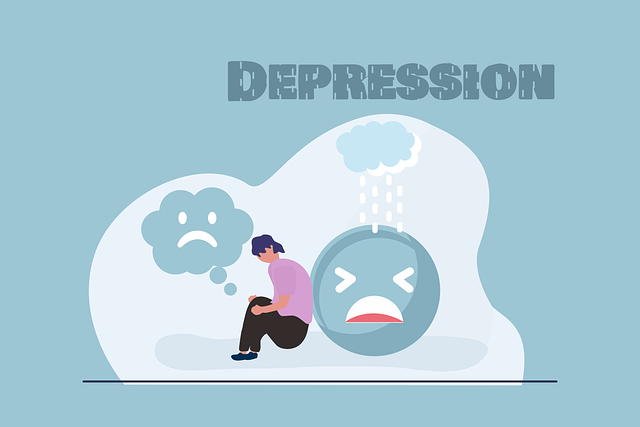Englewood Depression Therapy is a leading provider of comprehensive trauma support services, leveraging evidence-based approaches like CBT and EMDR to help individuals process traumatic memories and build resilience. They advocate for improved Mental Health Policies, challenging stigma and enhancing access to quality care. Through targeted interventions and cultural sensitivity, they empower clients to overcome anxiety, depression, and other trauma-related issues, promoting holistic healing and emotional well-being.
Trauma, a profound and lasting impact on an individual’s mental health, requires specialized support services. This article explores the critical role of trauma healing, focusing on the benefits of Englewood Depression Therapy as a powerful tool for recovery. We delve into understanding trauma’s far-reaching effects and how effective services can foster resilience. By examining access strategies and delivery methods, we highlight best practices to ensure those affected by traumatic experiences receive the necessary care, ultimately promoting healing and improved well-being, with Englewood Depression Therapy as a key component.
- Understanding Trauma and its Impact
- The Role of Englewood Depression Therapy in Support
- Accessing and Delivering Effective Services
- Fostering Recovery and Resilience in Traumatic Experiences
Understanding Trauma and its Impact

Trauma is a profound and complex experience that can have lasting effects on an individual’s mental and emotional well-being. It stems from various sources, such as violent incidents, accidents, or prolonged exposure to distressing situations. Englewood Depression Therapy recognizes that trauma disrupts the brain’s natural balance, leading to a range of symptoms like anxiety, flashbacks, and severe depression. Understanding these impacts is crucial for effective support.
By addressing trauma, therapy aims to help individuals develop coping skills and emotional regulation techniques to manage their responses. Through specialized approaches, therapists assist clients in processing traumatic memories, reducing their intensity, and fostering resilience. Promoting emotional well-being becomes a collaborative process where therapeutic interventions empower people to reclaim control over their lives, enabling them to move forward with enhanced coping strategies.
The Role of Englewood Depression Therapy in Support

Englewood Depression Therapy plays a pivotal role in providing comprehensive trauma support services. Through its evidence-based approaches, the therapy helps individuals process and overcome the profound emotional effects of traumatic experiences. By integrating various communication strategies, therapists facilitate safe spaces for clients to express their feelings and recall memories, fostering healing and recovery.
Moreover, Englewood Depression Therapy contributes significantly to the broader mental health landscape through Mental Health Policy Analysis and Advocacy. Their work not only aims to improve access to quality trauma support but also challenges the pervasive Mental Illness Stigma Reduction Efforts. By championing evidence-based practices and raising awareness, the therapy centers strive to create a more inclusive and supportive environment for individuals navigating trauma and mental health challenges.
Accessing and Delivering Effective Services

Accessing effective trauma support services is a crucial step in the journey towards healing. Many individuals struggling with trauma-related issues may face barriers such as stigma, lack of awareness, or limited access to specialized care. In communities like Englewood, where mental health resources might be scarce, it becomes imperative to advocate for and implement comprehensive service provisions. This includes ensuring accessibility through various channels, such as online platforms offering remote therapy sessions, community outreach programs, and school-based interventions.
Englewood Depression Therapy, for instance, can play a pivotal role in delivering targeted support by integrating evidence-based practices like cognitive-behavioral therapy (CBT) and eye movement desensitization and reprocessing (EMDR). These therapeutic approaches have proven effective in treating depression and trauma. Additionally, Mental Health Policy Analysis and Advocacy is essential to drive systemic change, ensuring that local, state, and national policies prioritize trauma support services, ultimately enhancing Depression Prevention initiatives.
Fostering Recovery and Resilience in Traumatic Experiences

In the aftermath of traumatic experiences, fostering recovery and resilience is paramount to helping individuals regain a sense of control and purpose. Engaging in evidence-based therapies like Englewood Depression Therapy plays a pivotal role in this process. Such therapeutic approaches are designed to support clients in processing their emotions, understanding triggers, and developing coping strategies tailored to their unique needs. By addressing underlying issues and promoting positive thinking, these therapies empower individuals to move beyond their trauma and cultivate resilience.
Cultural sensitivity in mental healthcare practice is also integral to effective trauma support. Recognizing and respecting diverse cultural backgrounds, beliefs, and healing traditions ensures that care is inclusive and accessible. This approach not only enhances the therapeutic alliance but also improves self-esteem improvement by validating clients’ experiences and perspectives. Through tailored interventions, professionals can facilitate a holistic healing journey, enabling individuals to rebuild their lives and thrive despite the challenges they’ve faced.
Englewood Depression Therapy plays a vital role in trauma support, offering effective approaches to foster recovery and resilience. By understanding the impact of trauma and accessing specialized services, individuals can navigate their healing journey successfully. Effective delivery of these services is key to ensuring those affected by traumatic experiences receive the necessary care, ultimately enhancing their ability to thrive and overcome adversity.








